Description
In 1876 Páll Gunnlaugsson and Nanna Jónsdóttir auctioned off their belongings and emigrated from Iceland to North America with their two young sons. A year earlier, Jón Guttormsson and Pálína Ketilsdóttir emigrated from a different Icelandic fjord with their young son Vigfús and settled in New Iceland, Canada.
This book looks at the processes of migration and settlement, and the cultural changes and continuities that arise from entanglements with new environments. It weaves the results of archaeological excavations at two farms, Hornbrekka, Iceland and Víðivellir, New Iceland together with the rich historical archive of the emigration period. The discussion focuses on four themes through which specific changes in the lives of the emigrants and their descendants are explored: ethnic identity, wealth, improvement, and modernity. The book provides a critical examination of how change occurs through continuities and argues that either/or categories are inherently unhelpful in explaining cultural change.
AUTHOR
Ágústa Edwald Maxwell is a historical archaeologist who specializes in the early modern North Atlantic. Her research interests include the archaeology of modernity and capitalism.
REVIEW
‘This is an excellent study in historical archaeology that engages with questions about modernity that transcend geographic region. It engages with multiple sources and brings attention to a little-known immigrant experience and raises important interpretative issues regarding how we approach issues of continuity and change and the meaning and material expression of ‘modernity.’’ Professor Audrey Horning, College of William & Mary, USA
‘Given the constant magnetism of the subject of the mass exodus from Europe to North America in the 19th and 20th centuries, I am confident that researchers from around the world would be interested in the groundbreaking contribution of this archaeological research.’ Dr Birna Bjarnadóttir, University of Iceland
'This book is an excellent example for historical archaeology which brings the actors, the Icelandic-Canadian families, back to life, as well as connecting their lives to our modern world through facing the same challenges of mobility, migration and integration.' Marion Uckelmann, Antiquity











